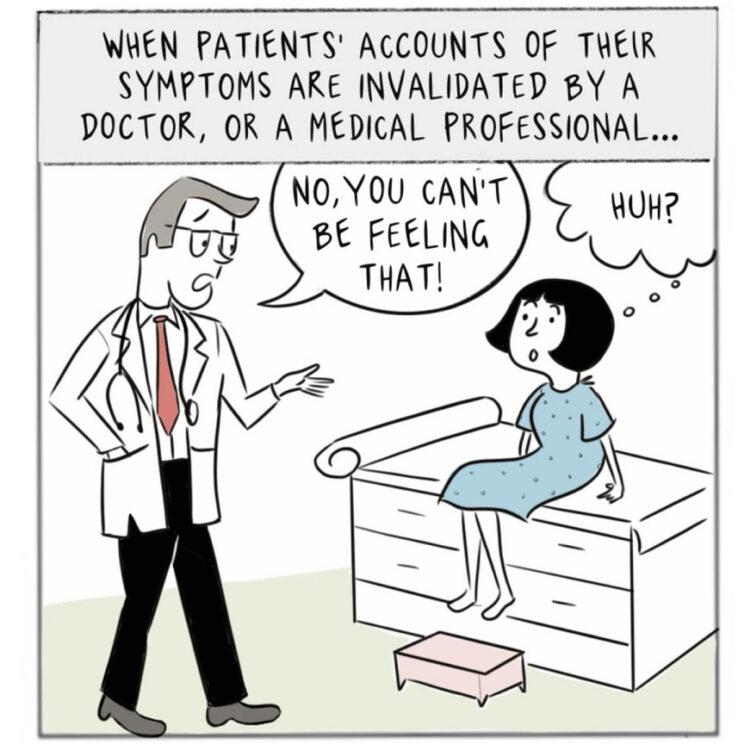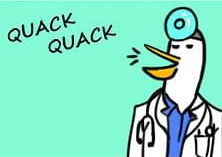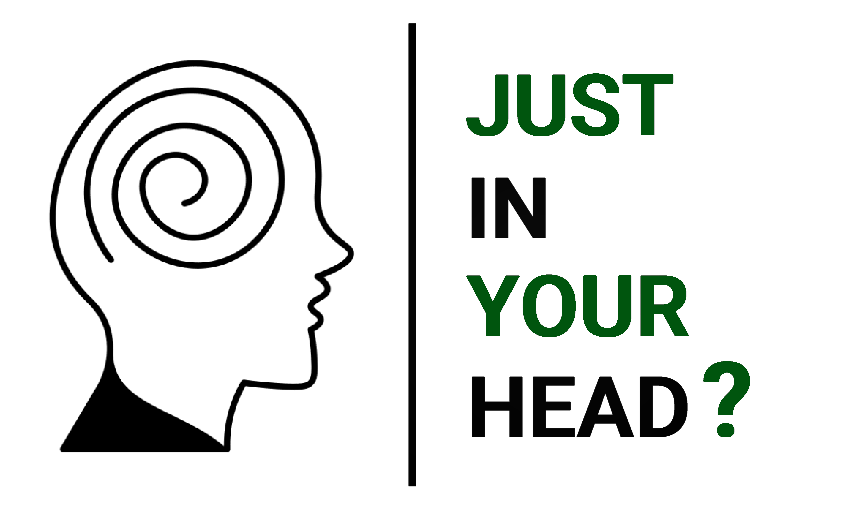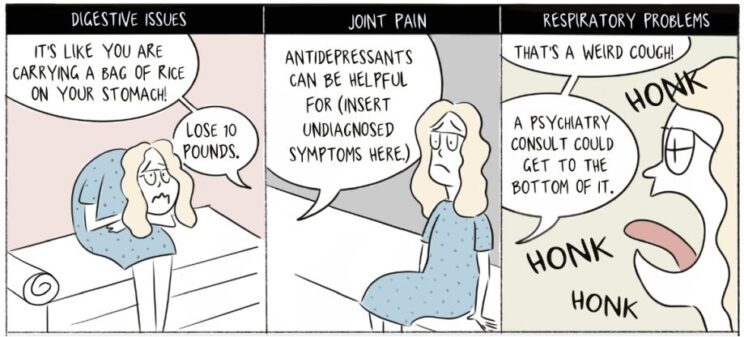Would you trust someone with diagnosing and treating you, provided they have no clue about an organ which is significantly influencing both your physical and mental well-being? Or if the person diagnosing you is overconfidently ignoring the limits of their diagnostic methods? If they are maybe not even following the principles of evidence-based medicine?
And yet, physicians are eager to put an label of depression, anxiety or whatever psychiatric diagnosis on a patient, directing them to psychiatrists who treat these supposed diagnoses with approaches which are based only on a partial, oversimplistic and dubious understanding of workings of the human body. Whatever objections these patients present, physicians (except for rare cases) will try to assert their expert knowledge and downplay them (after all, they are just objections of an obvious psychiatric patient, right?). These doctors will try to explain how well-researched and science-based their procedures and medications are, and at the same time, will gladly diagnose and „treat“ a patient, who is in fact suffering from, let's say a badly damaged health after carelessly being prescribed many antibiotics, having a severe gut dysbiosis, or an undiagnosed infection causing their health problems.
You might have heard fancy and scientifically sounding terms such as psychosomatic illness, functional disease, functional symptoms, conversion disorder and so on. Maybe you have even been "awarded" such a diagnosis after the prior tests didn't reveal any abnormalities explaining what's actually wrong with you - despite you knowing that something must be wrong.
Don't get me wrong. There are very real instances in which the term "psychosomatic" can be used legitimately. Yes, mental problems - as well as emotional distress or stress in general - may lead to generation of various physical symptoms. And they can play an important role in the development of illness as such (particularly, effects of chronic stress and trauma on body will be discussed in another article of mine). And yes, mental illness as such may likely appear even without a major "bodily" contribution.
But that's just a part of the story. On the other side, there is a very different story - one where patients suffering with terrible and obviously not "psychosomatic" symptoms visit doctors, undergo various examinations, test after test, after finding "nothing" or just some "minor" and inconclusive abnormalities, their doctor, apparently lacking any other explanation, concludes that their symptoms must be caused by one's bad psychological condition. Instead of admitting, you know... that they have absolutely no clue what's wrong.
Living in the 21th century and hearing everywhere about how the mainstream medicine is "science based" and advanced, one might get an impression that the diagnosis you receive from your doctor is based on very rigid, logical and science based deduction.
It might be the case that it is absolutely NOT.
Very real limits of medical knowledge with very real consequences
First of all, one must acknowledge that there is a lot that medicine still cannot even test for. Even if you take a full blood panel, have your doctor perform a great number of common examinations, sending you for whatever expensive and highly advanced test, MRI, CT scan, whatever, and all of these test results are normal (or just with some minor bad values), it still absolutely does NOT mean that you are allright!
Second, as I am mentioning in some of my other articles, there is a new organ in our body - the gut microbiome (and also microbiomes of other body parts, such as skin). Besides few tests (that only touch the top of the iceberg), possibilites of measuring what your microbiome's actual condition is are currently very limited. So again, how can you expect a doctor to give you a proper diagnosis and effective treatment if they are omitting one extremely important organ, which demonstrably has an effect on your entire health?
Third, there is no test for the fact that your symptoms are indeed caused by having some kind of "mental disease". Getting diagnosis of psychosomatic/functional/whatever disorder is in fact only a diagnosis by exclusion, that is, the medical personnel has no clue what's wrong with you, so they call it psychosomatics (or whatever fancy term), based on ideas which are in fact really obsolete, and which are often not backed by any solid science. There is still no common test for depression, anxiety, or for whatever supposed "brain malfunction". All the diagnosis is based truly only on doctor's best guess and limited by their knowledge (or their mood, time constraints or... lust for money?). All they have is a hammer so everything looks like a nail.
We still don‘t know what exactly is happening in the body (and brain) of a depressed (or achy... or insomniac) person. We can’t measure neurotransmiters precisely and we don’t really know what serotonin level in one’s brain is – and besides, that’s really just an oversimplification, it is much more complex than some single „level“ of a certain neurotransmiter.
The thing is, there is a whole myriad of reasons why someone’s neurotransmiters could be out of balance. It is definitely NOT only a matter of the brain going „bad“. One of the reasons can be a imbalance of one’s microbiome (dysbiosis), that is, e.g. too few of the microbes which would be otherwise producing „good mood chemicals“, or, in the opposite case, too many microbes producing metabolites which are essentially intoxicating you and causing you to feel depressed, achy, tired, anxious (or whatever else). Every wise physician or psychologist/psychiatrist - in this regard - should first suggest a serious and careful gut health and overall health check before everything else. Mainly before jumping to conclusions about the patient's state being "just in their head"!
The line between the physical and mental functioning of our body is really, really thin.
Would you like a cup of medical gaslighting?
Labeling seriously ill patients with absolutely debilitating symptoms as "depressed", having some unreleased trauma, being just overly sensitive or anything similar is an abuse. As simple as that. It only adds to one's suffering caused by already being sick as hell, when in fact it is just a quackery and pseudoscience. And those "highly science based" physicians representing "the only legit" medicine who are guilty of doing this are pretty much on par with some of the great quacks from the field of the so-called alternative medicine.

Illustration: Janice Goldberg
The recent unfortunate COVID pandemic has highlighted this problem once again, where some medical so-called experts have been dismissing health serious problems of patients with long COVID (post-COVID syndrome) with a confidence and ease and calling them psychosomatic in nature. In practical terms, some of them have voiced e.g. their opposition to the idea of opening centres for long-COVID patients due to them being allegedly "not needed", downplaying the entire issue.
Let's see how the future will look at these absurdities.


